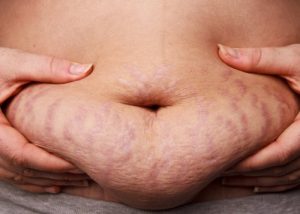
12 Nov Weight loss during breastfeeding: are the keto and intermittent fasting diets a wise choice?
Many new mums do their best to lose the fat gained during pregnancy while still breastfeeding their baby.
Among all the fad diets, keto diet and intermittent fasting have been gaining popularity when it comes to weight loss, but how safe are they during the lactation period?
KETO DIET, WHAT IS IT AND IS IT SAFE WHILE BREASTFEEDING?
Ketogenic diet, or keto for short, is not a new and trendy diet to lose weight. In fact, despite the recent hype, it has been in practice for almost a century, when Dr. Russell Wilder at the Mayo Clinic suggested this diet pattern for the treatment of epilepsy in children. Later, in the 70’s, Dr. Atkins patented his very-low-carbohydrate diet for weight loss. 1, 2

Since then, a lot of variations have been proposed, the main difference being the macronutrient ratio. However, all keto diets are high in fat, moderate in protein and low in carbohydrates. The diet is based on the belief that dietary carbs induce a rapid increase in the level of blood glucose, resulting in insulin release and weight gain. So, by reducing carbohydrates, it is assumed that insulin release is limited, and the body is forced to rely on lipids, in the form of ketones, for energy. 2, 3
BUT THE BIG QUESTION IS… CAN ONE GO ON KETO DIET WHILE BREASTFEEDING?
Sadly, the current scientific evidence about low carbohydrate diets and breastfeeding is limited. 4However, there are some arguments and results from preliminary studies that somehow suggest that this type of diet could be safe for nursing women and their babies.
First, newborns are in a natural ketosis state and they remain in this ketogenic and healthy state while breastfeeding. In addition, research confirms that lipids are the largest source of energy in breast milk from healthy mothers, contributing 40%–55% of the total energy of human milk.5
A 2009 study published in The American Journal of Clinical Nutrition compared a low-carbohydrate, high fat (LCHF) diet vs. a high-carbohydrate, low fat (HCLF) diet in breastfeeding women6. Some of the conclusions from this study were:
- Daily breast milk production and baby intake were the same regardless of diet.
- Diet had no effect on breast milk lactose or protein content. However, fat concentration in the milk increased on the keto diet.
- The energy content of milk was higher during the LCHF diet – this means that babies received more calories with this diet pattern.
- Lactating mothers who consumed the LCHF diet experienced decreased carbohydrate oxidation and increased fat oxidation to produce glucose.

Based on these results, researchers concluded that lactating mums could lose more weight while on a low carb diet without affecting milk production or the quality and quantity of the milk produced.
However, it is important to note that the amount of carbohydrates consumed during the LCHF was around 130 g per day, which wouldn’t be considered a true low carb diet.
Despite the results from this study, more research would be needed, and it is best to adopt a moderate keto diet, with at least 60 grams of carbohydrates while breastfeeding.7
INTERMITTENT FASTING
Intermittent fasting is another popular dietary strategy which is used to reduce caloric intake and induce weight loss. 1There are different types of intermittent fasting, but they all focus around the same idea: You eat and drink in punctuated periods of time, followed by other periods of energy restriction or fasting. For example, in the 16:8 diet, you eat whatever you want for eight hours each day and fast during the remaining 16 hours. 2

Though there’s limited information, it’s important to remember that milk production may reduce in breastfeeding women who eat less than 1,800 calories per day. 3 (You can read more about dieting and breastmilk supply here).
In any case, despite the little research, we can take Ramadan fasting as an example . A study showed that fasting had no significant effect on the macronutrient composition of breast milk, but there were significant differences in some of the micronutrients such as zinc, magnesium and potassium. To conclude, the nutritional status of the mothers was affected by Ramadan fasting.4
What’s more, Elizabeth Ward, MS, RDN, author of Expect the Best, Your Guide to Healthy Eating Before, During, and After Pregnancy, explains that pregnant and breastfeeding women should not attempt fasting because they need consistent energy and nutrients to support the developing fetus and to produce breast milk. Therefore, intermittent fasting should not be recommended to women who are pregnant or breast-feeding.6
Lastly, according to Torey Armul, R.D.N., a spokesperson for the American Academy of Nutrition and Dietetics, intermittent fasting can be dangerous during breastfeeding because it restricts the amount of food and fluids for both mum and her baby: “Breastfeeding requires a continuous source of fluids and calories to maintain a woman’s milk supply and meet her own body’s needs. Limiting food and fluids from any type of fasting can lead to reduced milk supply, inadequate nutritional status, low energy levels and dehydration.” Armul says.7
FINAL WORDS
It is important to note that long term restriction of carbohydrates and our overall diet can also impact gut health, particularly diets high in animal foods and saturated foods, and low in grains, which can potentially increase disease risk in the future. Sure, any restrictive diet is going to result in weight loss in the short term, but if you want to have long term good health, this might not be the best solution.
Breastfeeding your child is important, and if you’re keen to exclusively breastfeed your baby, you wouldn’t want to do something that might risk milk supply.
If you want to follow a keto diet to help you lose those extra kilo’s, go for it, but do it properly, with the right nutritional assessment with an Accredited Practicing Dietitian and be informed of the potential risks.
Remember, as with any diet, keto might not be right for all women. There is no “one size fits all”, so listen to your body and choose what is best for you.



Sorry, the comment form is closed at this time.